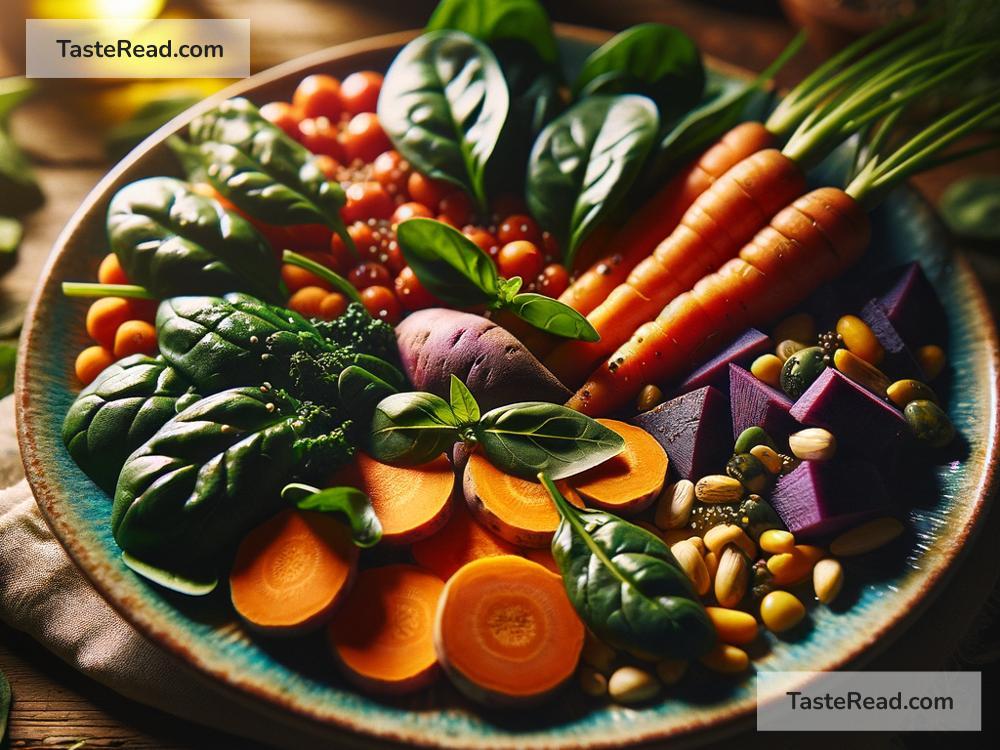Foods That Support Night Vision: Eat Your Way to Better Sight in the Dark
Have you ever found it difficult to see clearly in low light or at night? If so, you’re not alone! Many people experience challenges with night vision, but did you know that the foods you eat can play a big role in supporting healthy eyesight, especially in the dark? Your eyes rely on many nutrients to function properly, and some of those nutrients are found in everyday foods. By incorporating these into your diet, you can help protect your vision and improve how your eyes adapt when the lights go down.
Let’s explore the foods that can boost night vision and the nutrients they contain.
1. Carrots: The Night Vision Superfood
Carrots are perhaps the most famous food linked to good eyesight, and there’s a good reason for that. They’re loaded with beta-carotene, which is a type of vitamin A. Vitamin A is essential for your eyes because it helps maintain healthy vision and supports the function of your retina, the part of your eye responsible for detecting light.
When it comes to night vision, vitamin A is especially important. A deficiency can cause a condition called “night blindness,” making it hard to see in dim light. So, munch on raw carrots as a snack or enjoy them cooked in soups, salads, or stir-fries to give your eyes the nutrients they need.
2. Sweet Potatoes: Another Vitamin A Powerhouse
If you’re looking for an alternative to carrots, sweet potatoes are another great option. Like carrots, they are rich in beta-carotene, which converts into vitamin A in your body. Sweet potatoes are not only good for your eyes but are also tasty and versatile—you can bake them, mash them, or roast them for a delicious side dish.
Including sweet potatoes in your meals can help enhance your night vision while also providing fiber and other vitamins for overall health.
3. Spinach and Kale: Leafy Greens to the Rescue
Leafy green vegetables like spinach and kale might not be the first thing that pops into your mind when thinking about night vision, but they are incredibly good for your eyes. These vegetables are packed with antioxidants like lutein and zeaxanthin, which help protect your retina from damage caused by harmful light.
While lutein and zeaxanthin don’t directly improve night vision, they contribute to overall eye health and can slow the progression of vision problems. A healthy retina enables your eyes to adapt to changes in light better, helping you see more clearly at night. Toss spinach and kale into salads, smoothies, or omelets for a nutritious addition to your meals.
4. Eggs: Small But Mighty
Eggs are another excellent food for eye health. They are a good source of vitamin A, lutein, and zeaxanthin—all of which support your eyes in different ways. The yolk is where most of these nutrients are concentrated, so don’t shy away from eating it.
Adding eggs to your breakfast or incorporating them into recipes like frittatas and casseroles can help ensure your body gets the nutrients needed for sharp night vision.
5. Fish: Omega-3 Benefits for Your Eyes
Fatty fish like salmon, mackerel, and tuna are high in omega-3 fatty acids, which are important for maintaining a healthy retina. Omega-3s help reduce inflammation and improve the overall function of your eyes. While they don’t specifically target night vision, including fish in your diet can help ensure your eyes are in top condition.
If you’re not a fan of fish, you can try omega-3 supplements, but it’s always best to consult a healthcare provider before starting any supplementation.
6. Oranges and Other Citrus Fruits: Vitamin C Support
Vitamin C, found in oranges, lemons, limes, and grapefruits, supports the connective tissues in your eyes and may reduce your risk of developing certain eye diseases. While this vitamin doesn’t directly boost night vision, it helps maintain healthy eyes, making them less prone to damage over time.
Enjoy a glass of orange juice in the morning or snack on fresh citrus fruits to give your eyes a healthy dose of vitamin C.
7. Blueberries: Tiny Vision Boosters
Blueberries are small but mighty when it comes to supporting eye health. They contain antioxidants, including anthocyanins, which may improve your ability to see in dim light. Studies suggest that antioxidants can help reduce eye strain and support overall vision.
Adding blueberries to oatmeal, yogurt, or smoothies is an easy way to enjoy their benefits.
8. Red Peppers: A Splash of Color and Nutrition
Red bell peppers are rich in vitamin C, just like citrus fruits, but they also contain beta-carotene and other antioxidants that promote eye health. Including them in your meals can help protect your eyes from conditions that could affect vision over time.
Slice them up and use them as a crunchy snack or stir them into your favorite dishes for added color and nutrients.
Closing Thoughts
Eating the right foods can make a big difference for your eyes, especially when it comes to seeing well at night. While these foods won’t turn you into a superhero with perfect night vision, they can help ensure your eyes stay healthy and function optimally in dim light. Pair a nutrient-rich diet with regular eye checkups and proper eye protection to safeguard your vision for years to come.
So, next time you sit down for a meal, think of your eyes and fill your plate with carrots, leafy greens, and other tasty options that support night vision. Your eyes will thank you!


